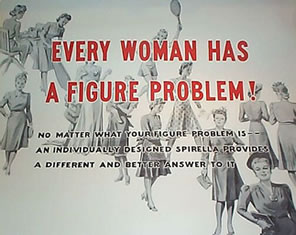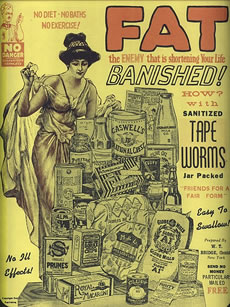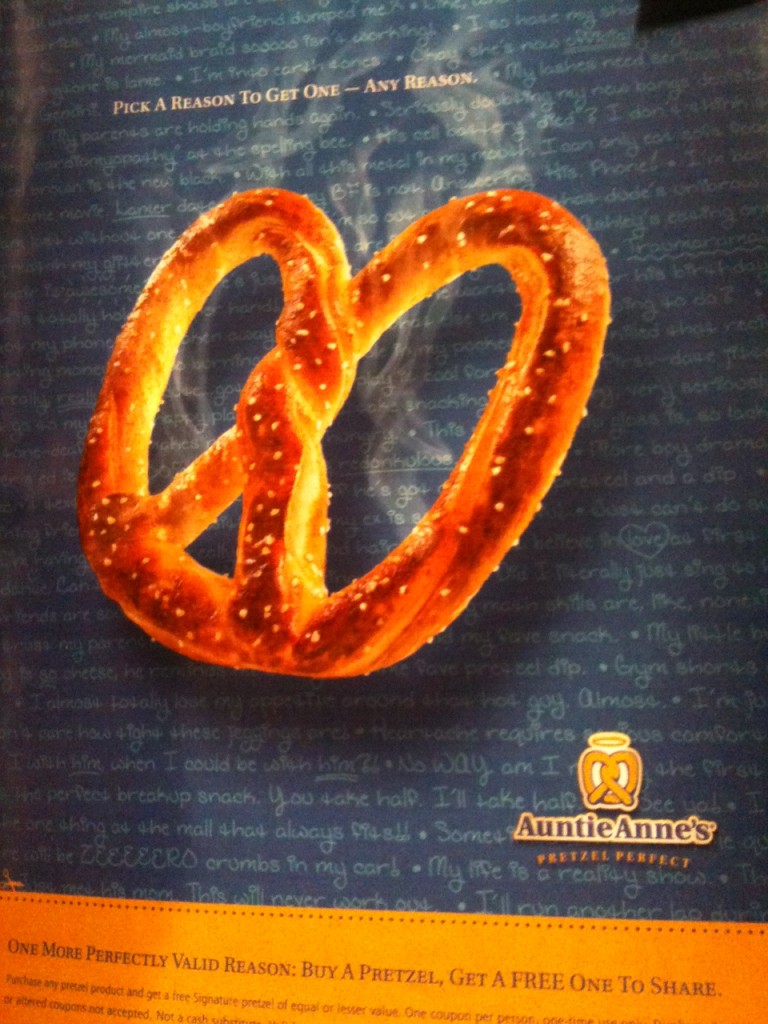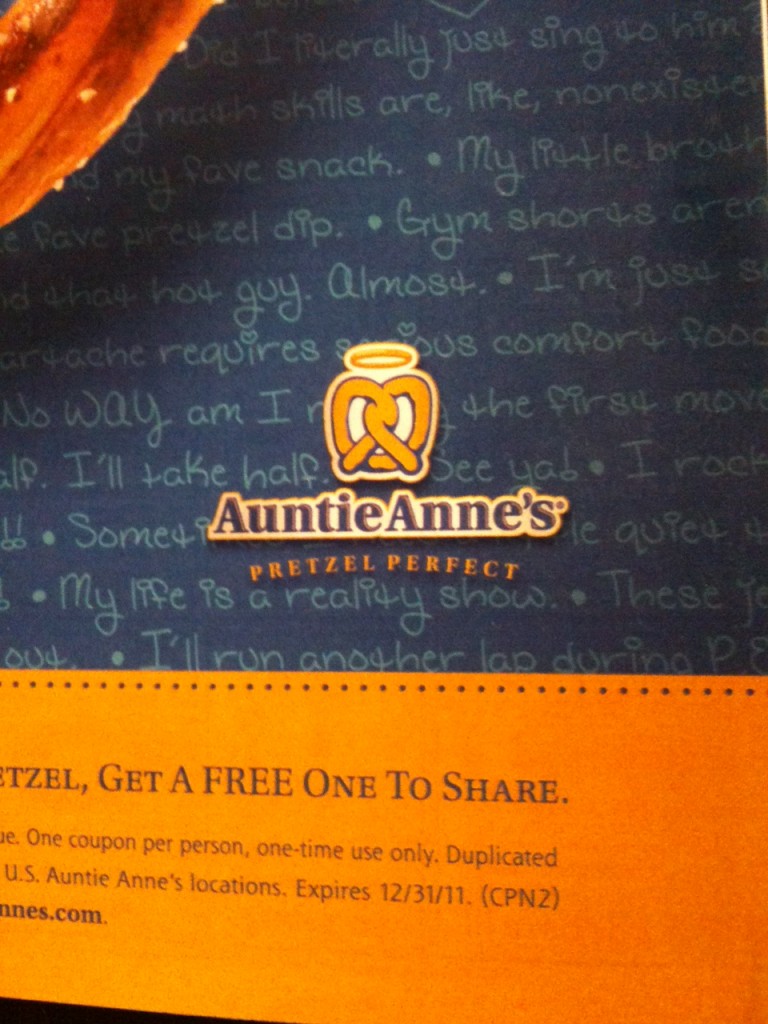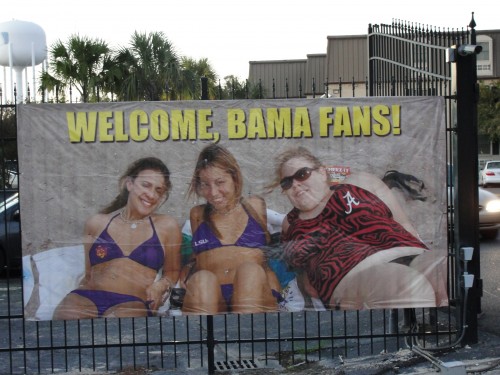Anna J., a student at Rensselaer Polytechnic Institute, sent in this vintage ad for Spirella girdles that provides a good reminder of how women are repeatedly told that our bodies are never, ever acceptable as they are, but are always in need of “improvement” through the use of products (found at The Great Fitness Experiment):
But hey, if you don’t feel like wearing a girdle, perhaps some tapeworms are your solution:
UPDATE: Reader Syd says the tapeworm ad is a hoax, though other readers disagree, and the practice itself definitely occurred. I don’t know how to find out, but since there’s at least some question about it, I’d take it with caution. However, commenter Angela pointed out that Tyra Banks recently had a story on tapeworms on her show:
As Anna points out, “It’s really interesting how ads have changed over time, but the expectation of culture that women be dieting has remained the same.” Certainly more people wouldn’t tell women to eat a tapeworm — sanitized or not — these days, but plenty of questionable products out there still promise weight loss with “no diet” and “no exercise,” and my bet is you could pick up any women’s magazine currently on the shelf and get a range of advice on how to make sure you lose any weight you might have gained over the holiday season.

